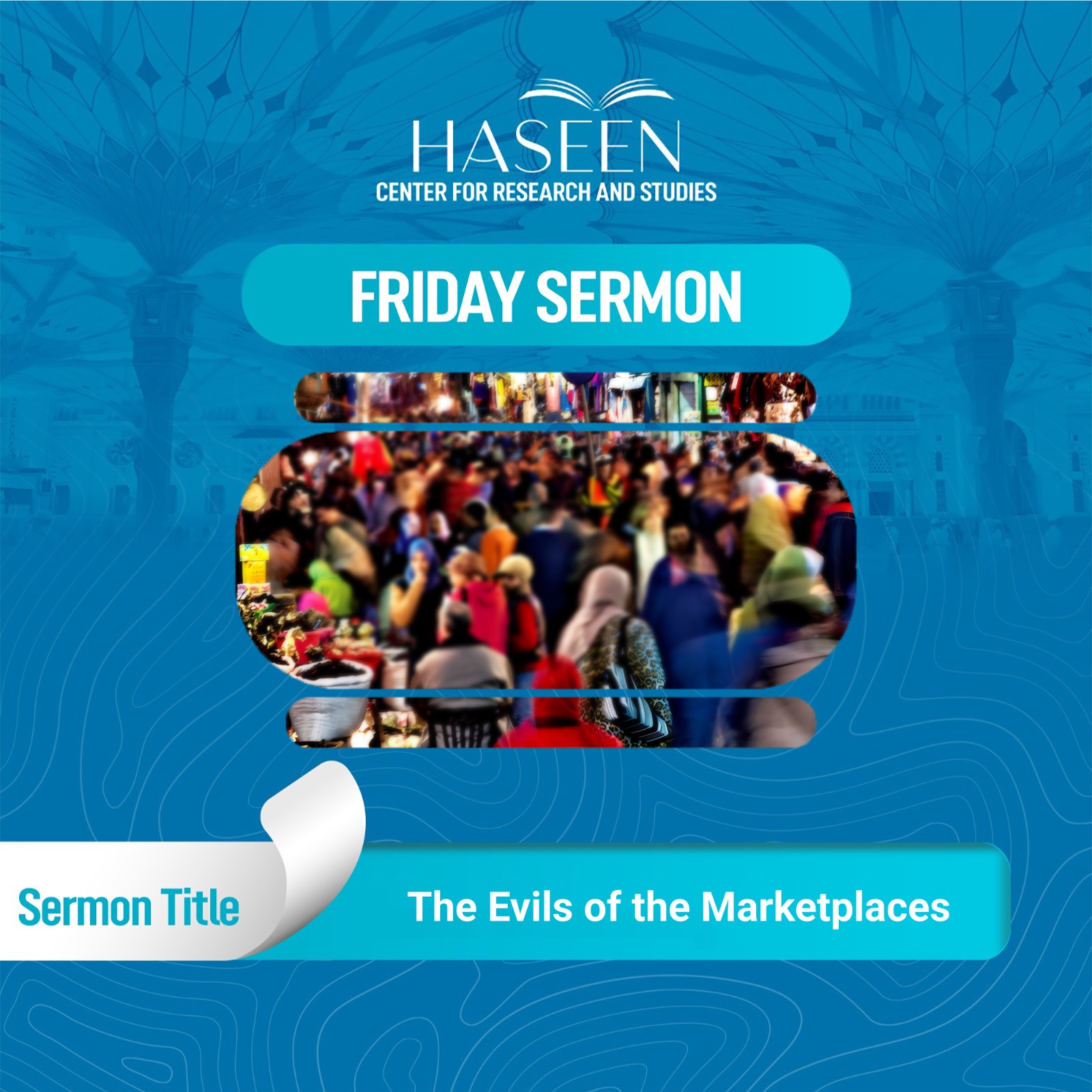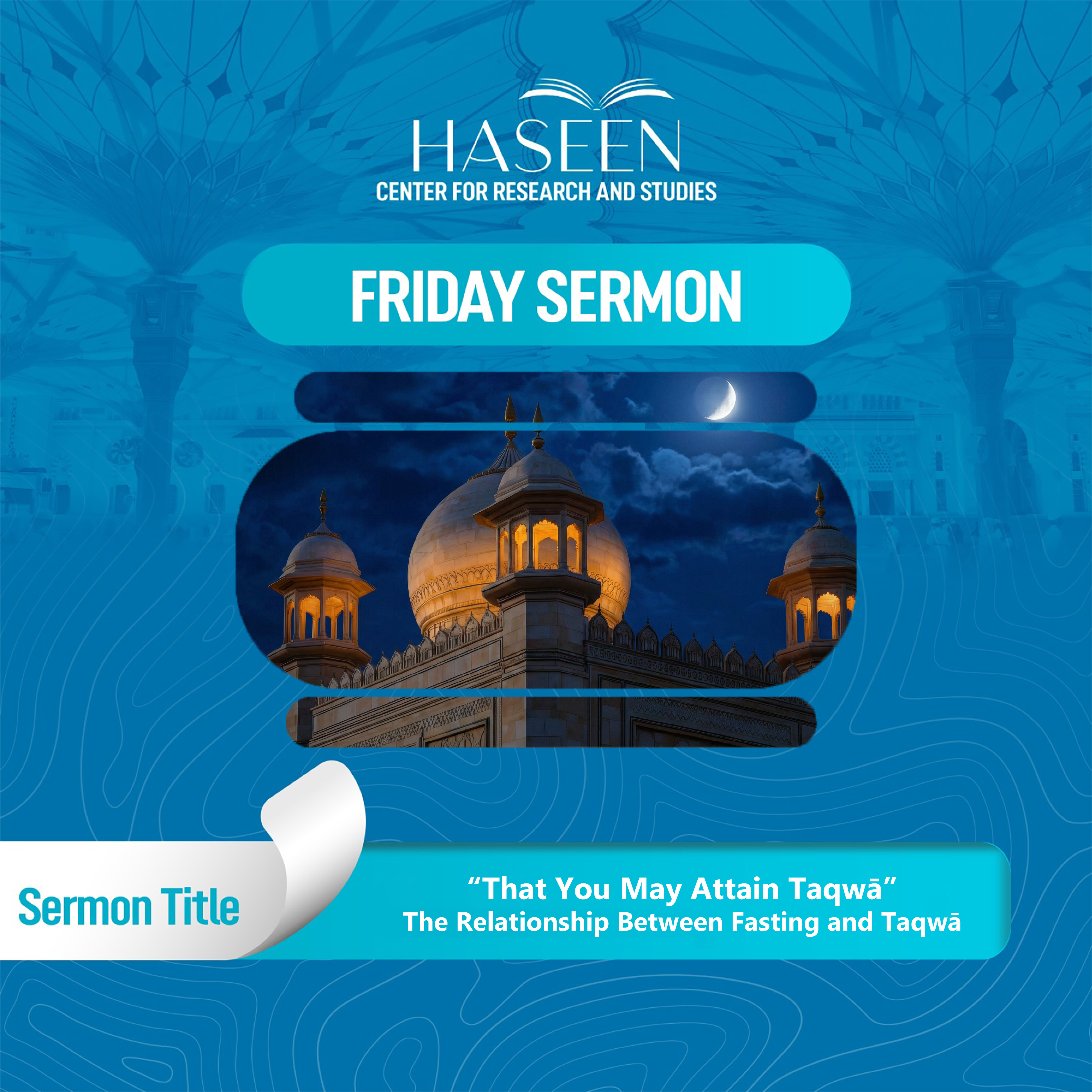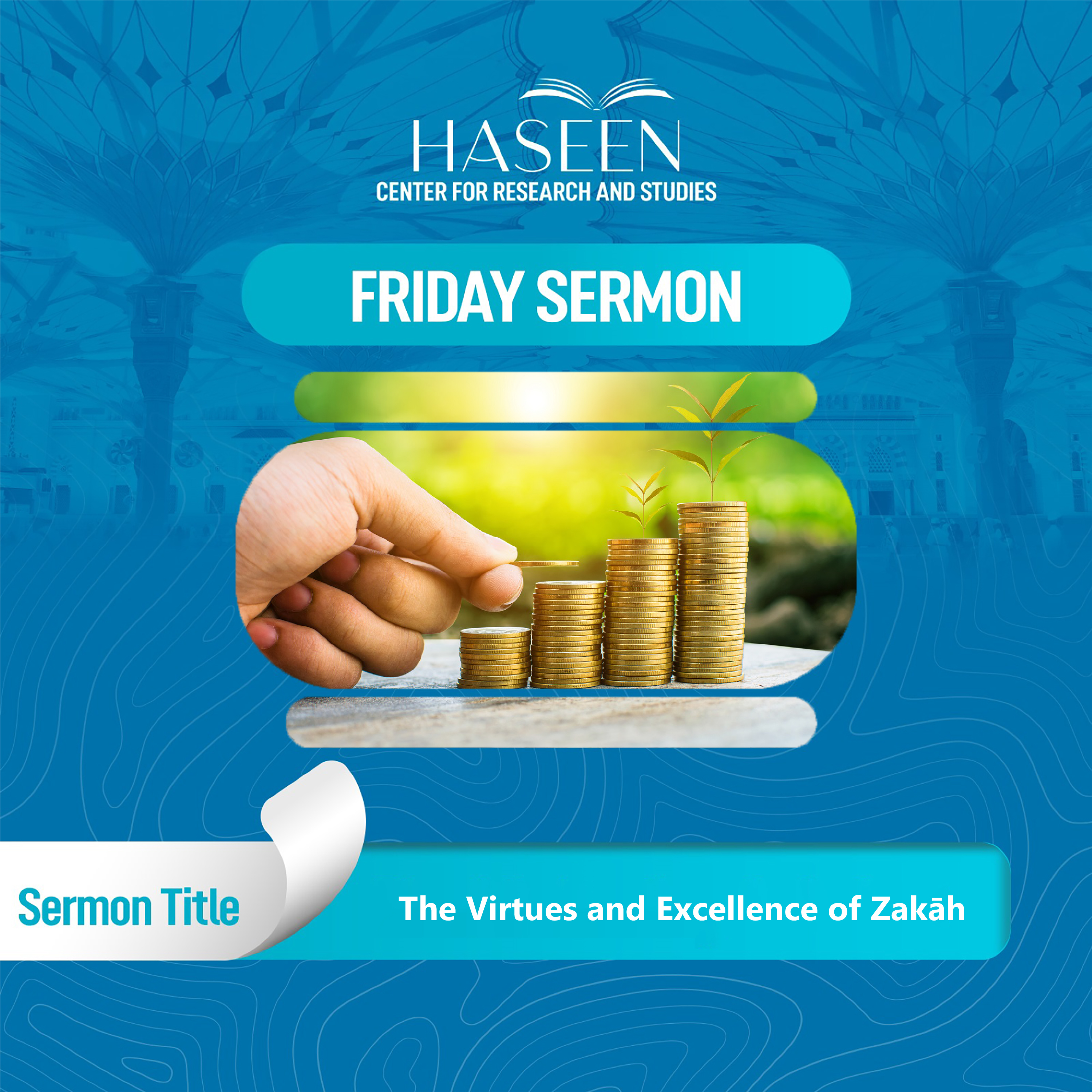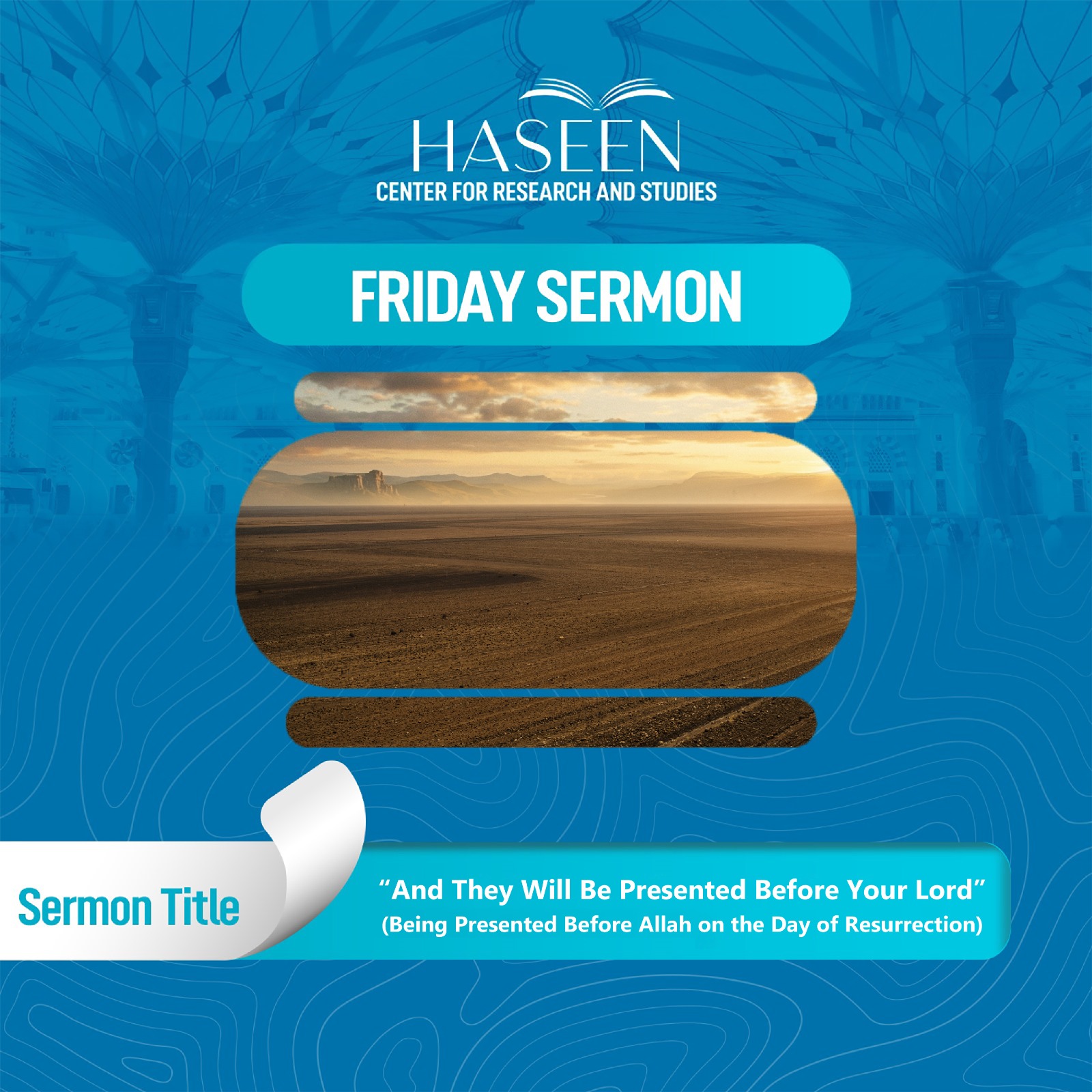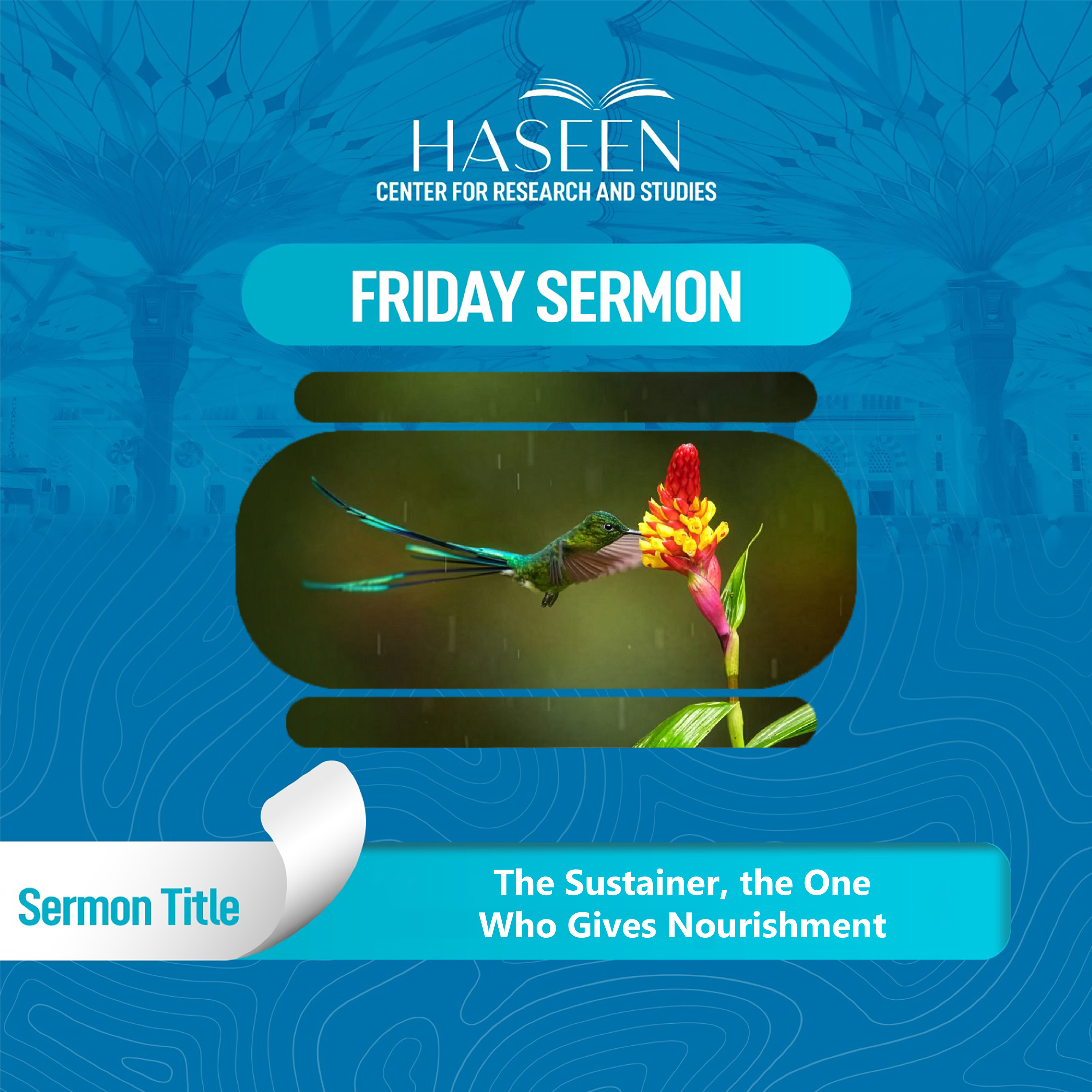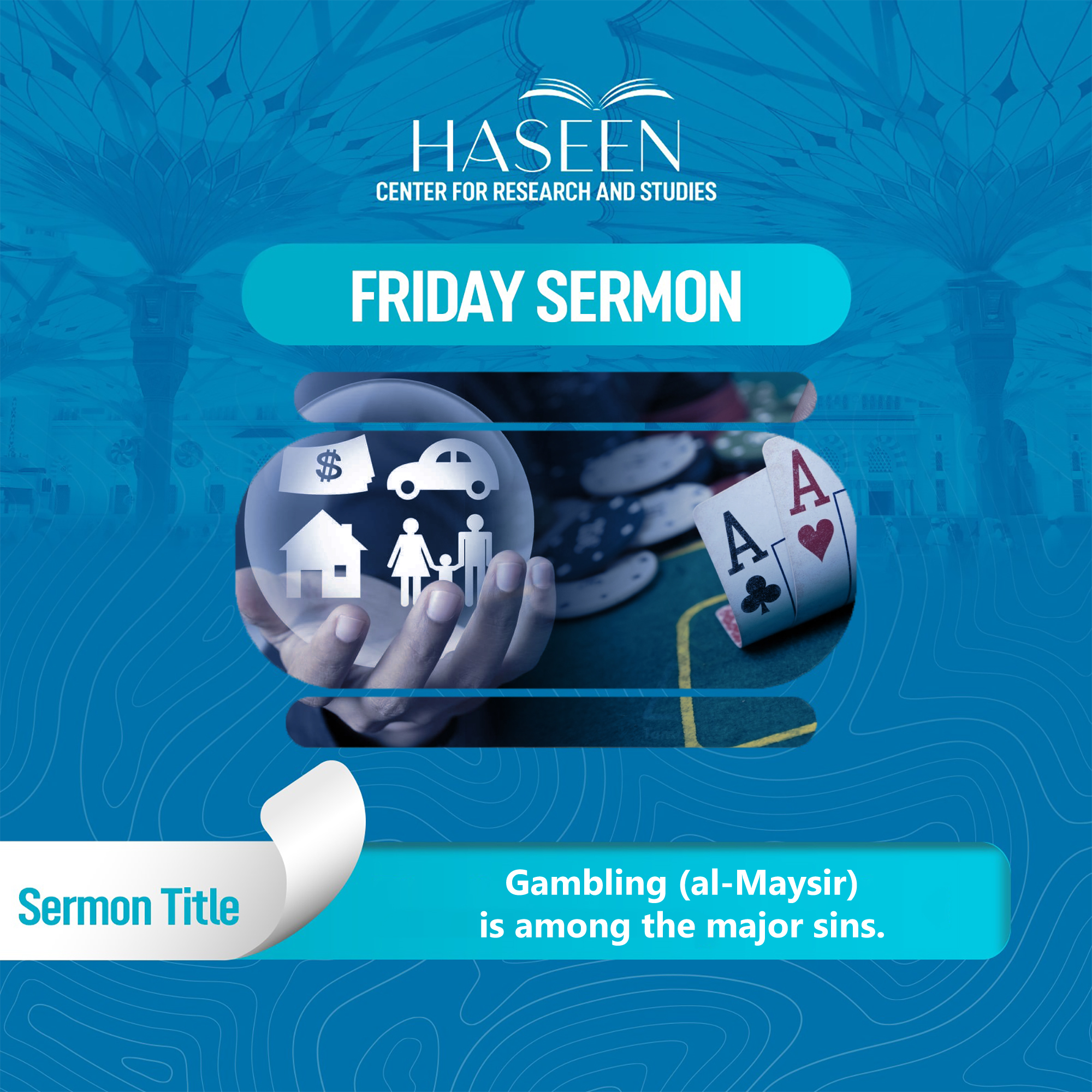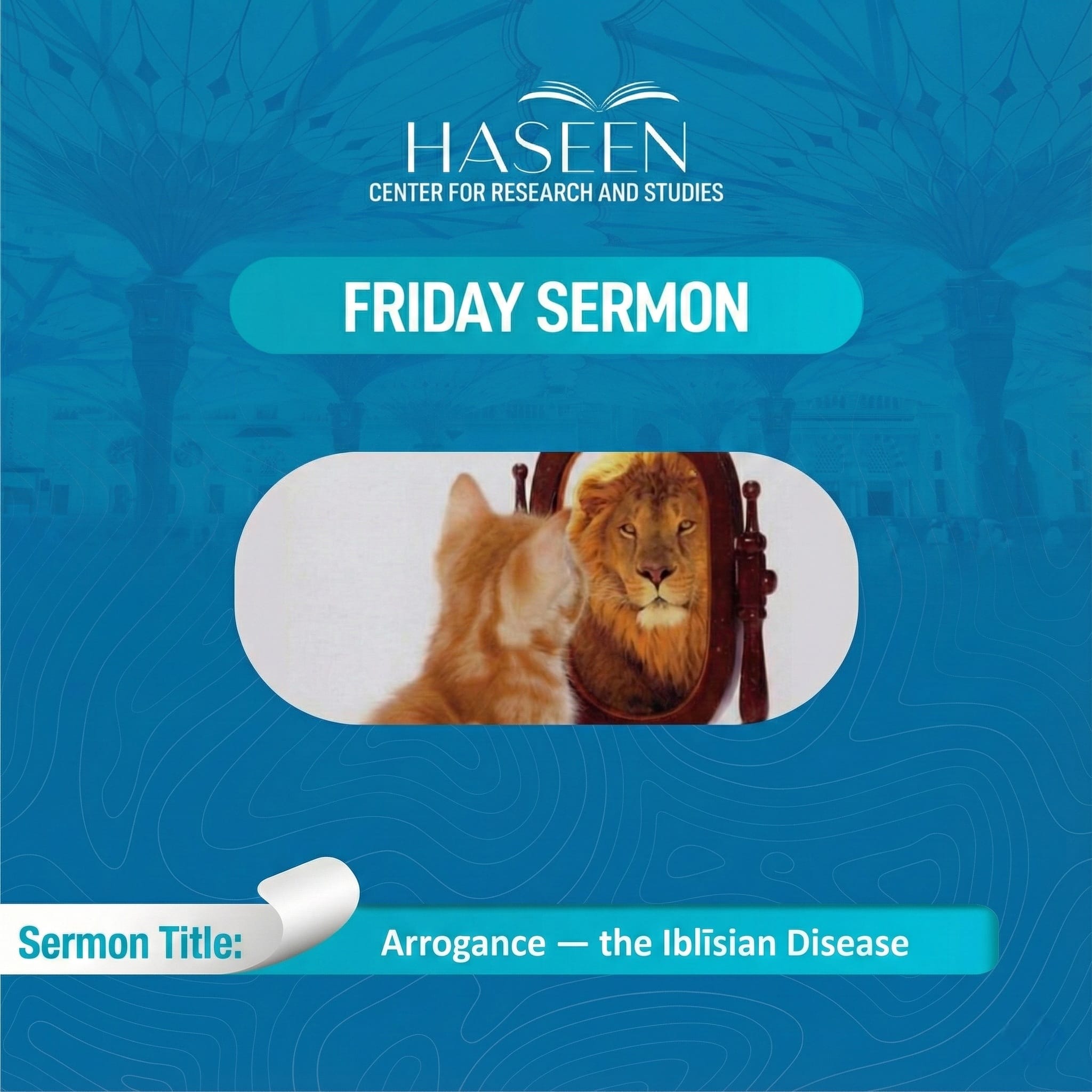Title of Sermon: The Evils of the Marketplaces
Elements of Sermon:
The rulings of Shari’ah benefit both worldly and religious matters.
The believer is not enslaved by the adornments of this world.
The evils found in marketplaces.
Protective jealousy over honor.
All praise is due to Allah, who made His Shariah a mercy for all worlds and a means of rectifying both worldly and religious matters. I bear witness that there is no deity worthy of worship except Allah alone, with no partner, and I bear witness that Muhammad is His servant and Messenger. May Allah’s peace and blessings be upon him in abundance until the Day of Judgment.
To proceed:
Fear Allah, O servants of Allah, as He should be feared, and remain mindful of Him in private and public. Allah says:
يَا أَيُّهَا الَّذِينَ آمَنُوا اتَّقُوا اللَّهَ حَقَّ تُقَاتِهِ وَلَا تَمُوتُنَّ إِلَّا وَأَنْتُمْ مُسْلِمُونَ
"O you who believe, fear Allah as He should be feared and do not die except as Muslims." [Aal Imran: 102]
Servants of Allah:
Have you heard of the marketplace of Paradise?
The Prophet ﷺ said: "Indeed, in Paradise, there is a marketplace to which they will come every Friday. A northern wind will blow, scattering fragrance over their faces and garments, increasing them in beauty and splendor. They will return to their families, who will say: 'By Allah, you have become even more beautiful and splendid after leaving us!' They will reply: 'And you, by Allah, have also become more beautiful and splendid after us!'" (Muslim)
How glorious is the gathering, how delightful is the meeting, and how magnificent is the reward! The Lord of the heavens and the earth will increase them in beauty and splendor!
Human beings have always, since their creation, engaged in trade, established marketplaces, and conducted commerce. These are essential aspects of life that people cannot do without.
Allah’s guiding and just Shariah came to ensure the welfare of this world and the Hereafter so that humanity may lead a good and fulfilling life through this religion.
Since the Shariah is inseparable from human life, its rulings encompass every aspect of worldly matters, including marketplaces, buying, and selling.
Dear Muslims:
In this age of overwhelming consumerism, with its captivating commodities and alluring imagery, the world is marketed with dazzling adornments. People are driven to large markets with relentless force—through offers, discounts, events, festivals, and parties. Yet, the Muslim must pause and reflect to discern what pleases the Creator of all creation.
A Muslim is a servant of Allah alone, not a slave to anyone else. As for the slaves of this world, their state is as described by the Prophet ﷺ: "Wretched is the slave of the dinar, the dirham, the luxurious cloth, and the embroidered garment. If he is given, he is pleased, but if he is not, he becomes displeased." (Bukhari)
Do you know who the slave of the luxurious cloth is? It is the one enslaved by fine clothing and glamorous garments.
When hearts become attached to the world, its pleasures, and its adornments, a person becomes enslaved to it. They toil for it, exhausting their lifetime for fleeting pleasures. They live their days and nights consumed by worldly concerns, grieved over what escapes them, hastening to satisfy their desires.
Some chase after celebrities on social media—one flaunting a luxurious car, another showcasing elegant attire, and a third displaying extravagant furniture. They compare these with their own lives, belittle Allah’s provision for them, and fall into sadness and discontent.
Some immerse themselves in worldly pursuits, neglecting the ranks of Paradise. Others, driven by their greed, abandon obligations or commit prohibitions. They may be lured by interest-based loans from banks or tempted by credit cards laden with usurious conditions. Some resort to bribery, embezzlement, oppression, or consuming others’ wealth unlawfully—all for fleeting worldly pleasures.
No wonder Allah advised His Prophet ﷺ:
وَلَا تَمُدَّنَّ عَيْنَيْكَ إِلَى مَا مَتَّعْنَا بِهِ أَزْوَاجًا مِنْهُمْ زَهْرَةَ الْحَيَاةِ الدُّنْيَا لِنَفْتِنَهُمْ فِيهِ وَرِزْقُ رَبِّكَ خَيْرٌ وَأَبْقَى
"And do not extend your eyes toward that by which We have given enjoyment to [certain] groups of them—the splendor of worldly life by which We test them. And the provision of your Lord is better and more enduring." [Taha: 131]
Servants of Allah:
Despite the necessity of marketplaces for people, the Prophet ﷺ said:
"The most beloved places to Allah are the mosques, and the most detested places to Allah are the marketplaces." (Muslim)
Marketplaces are despised because of the sins that often occur within them—usury, forbidden sales, false oaths, deception, fraud, and misleading practices. Moreover, they are filled with heedlessness of Allah’s remembrance and neglect of prayer.
The marketplaces of Muslims should differ from those of others. The Shariah of the Most Merciful governs worldly affairs, ensuring that they align with divine guidance. Yet, today, marketplaces—vast and grand like arenas—are rife with numerous evils that Muslims must reject.
The prevalence of immorality is a warning sign of impending destruction.
Zaynab bint Jahsh, may Allah be pleased with her, once asked the Prophet ﷺ: "O Messenger of Allah! Will we perish even if there are righteous people among us?" He replied: "Yes, if wickedness becomes widespread." (Bukhari and Muslim)
Praise be to Allah, who made His Shariah a mercy for the worlds and a source of rectitude for both worldly and religious matters. I bear witness that there is no deity worthy of worship except Allah alone, with no partner, and I bear witness that Muhammad is His servant and Messenger. May Allah’s peace and blessings be upon him, his family, and his companions in abundance until the Day of Judgment.
Servants of Allah:
Among the forms of corruption that fill today’s marketplaces is a scene laden with many prohibited acts that pave the way to destructive sins. Music and songs resound loudly, blending with the mingling of men and women, some of whom gaze at one another without shame. Many women go out adorned and perfumed, crowding with men in shops and restaurants. Some may even lose their sense of modesty, laughing openly with vendors. Does such behavior please Allah?
Indeed, music and singing are among the prohibited acts that invite divine punishment. The Prophet ﷺ said: "In this ummah, there will be sinking into the earth, transformation into animals, and stones raining from the sky." A man from among the Muslims asked, "O Messenger of Allah, when will that happen?" He replied: "When singing girls and musical instruments become widespread, and wine is consumed." (Tirmidhi)
Servants of Allah:
Did Allah not command believing women to observe modesty and wear the hijab in clear and decisive verses? Allah says:
يَا أَيُّهَا النَّبِيُّ قُلْ لِأَزْوَاجِكَ وَبَنَاتِكَ وَنِسَاءِ الْمُؤْمِنِينَ يُدْنِينَ عَلَيْهِنَّ مِنْ جَلَابِيبِهِنَّ ذَلِكَ أَدْنَى أَنْ يُعْرَفْنَ فَلَا يُؤْذَيْنَ وَكَانَ اللَّهُ غَفُورًا رَحِيمًا
"O Prophet, tell your wives and your daughters and the women of the believers to draw their cloaks over themselves. That is more suitable that they will be known and not be abused. And ever is Allah Forgiving and Merciful." [Al-Ahzab: 59]
Did the Prophet ﷺ not say: "There are two categories of the people of Hell that I have not seen yet,"—and among them, he mentioned—"women who are clothed yet naked, inclined to evil and causing others to incline to evil. Their heads are like the humps of camels leaning to one side. They will not enter Paradise nor smell its fragrance, though its fragrance can be perceived from such and such a distance." (Muslim)
What about the woman who goes to the marketplaces fully adorned and wearing her most beautiful perfume? Is her action pleasing to Allah?
The Prophet ﷺ said: "Any woman who perfumes herself and passes by people so they can smell her fragrance is a fornicator." (Nasa’i)
Matters can become even more disgraceful when a woman isolates herself with a vendor in a closed space, where Satan becomes the third party. This is a grave sin!
The Prophet ﷺ said: "A woman must not travel except with a mahram, and no man may enter upon her unless she has a mahram with her." (Bukhari and Muslim)
Dear Muslims:
The texts of the Shariah are unequivocal in prohibiting the intermingling of men and women. The Prophet ﷺ once left his mosque and saw men and women mingling on the road. He said to the women: "Step back, for it is not proper for you to walk in the middle of the road. Keep to the sides of the road." Thereafter, women would walk so close to the walls that their garments would cling to them due to their proximity. (Abu Dawood)
These were the women of the companions, the best generation of this ummah. They had just completed their prayer with the Prophet ﷺ, yet he still instructed them to avoid walking in the middle of the road and crowding with men.
A woman once said to Aisha, the Mother of the Believers, may Allah be pleased with her: "O Mother of the Believers! I circumambulated the Kaaba seven times and touched the corner (the Black Stone) twice or thrice!" Aisha replied: "May Allah not reward you! May Allah not reward you! You crowded with men? Why didn’t you glorify Allah and pass by instead?" (Reported by Shafi’i)
This was Aisha’s denunciation of a veiled woman who, while observing her hijab, crowded with men to touch the Black Stone. What would she say if she saw the behavior of some women in today’s marketplaces and festivals?
Both believing men and women must lower their gazes, as Allah has commanded:
قُلْ لِلْمُؤْمِنِينَ يَغُضُّوا مِنْ أَبْصَارِهِمْ
"Tell the believing men to lower their gaze." [An-Nur: 30]
وَقُلْ لِلْمُؤْمِنَاتِ يَغْضُضْنَ مِنْ أَبْصَارِهِنَّ
"And tell the believing women to lower their gaze." [An-Nur: 31]
Every calamity begins with a fleeting glance,
Just as a blaze arises from a spark's mere chance.
How many a gaze has pierced a heart so deep,
Like arrows striking without bow or string to keep.
May Allah bless me and you through the Great Qur'an, and benefit us with its verses and wise reminders. I seek Allah’s forgiveness for myself and for you, so seek His forgiveness, for He is the Most Forgiving, the Most Merciful.
Second Sermon
All praise is due to Allah, and may peace and blessings be upon the Messenger of Allah, his family, his companions, and those who follow them.
To proceed:
How noble is the sense of protective jealousy over one’s sanctities and honor! Such protective jealousy adorns the pure and righteous men.
Sa’d ibn Ubadah (may Allah be pleased with him) was among the most protective of men, and about him, the Prophet ﷺ said: "Are you amazed by Sa’d’s protective jealousy? By Allah, I am more protective than him, and Allah is more protective than me. Because of His protective jealousy, Allah has prohibited immoralities, both apparent and hidden." (Narrated by Al-Bukhari and Muslim).
I conclude my sermon with a timeless message to men, delivered by Abu al-Hasan Ali ibn Abi Talib (may Allah be pleased with him). When he learned in his time that some women were going out to the markets, mingling with the men of the disbelievers, he said: "Do you not feel protective jealousy that your women go out? It has reached me that your women go out to the markets, mingling with the disbelievers." (Narrated by Ahmad).
So, O servants of Allah! Adherence to the Shari’ah of Allah must be in every aspect of our lives—within our mosques, homes, markets, gatherings, courts, and governance. It is through this adherence that salvation and a wholesome life, in this world and the Hereafter, are attained.
O Allah, grant victory to Islam and honor the Muslims. Destroy the criminal Jews. O Allah, instill tranquility in the hearts of those striving in Your cause. Deliver Your oppressed servants, and raise high the banner of the religion with Your strength, O Almighty and Omnipotent.
O Allah, grant us safety in our homelands. Rectify our leaders and those in authority over us, and make our leadership among those who fear You, are conscious of You, and follow Your guidance.
Our Lord, grant us good in this world and good in the Hereafter, and protect us from the punishment of the Fire.


